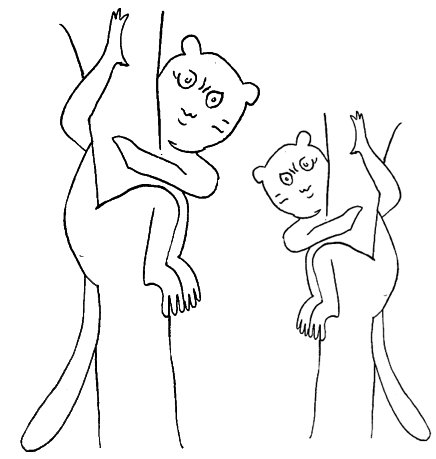
規範倫理学
Normative ethics

☆規範倫理学(Normative ethics)
とは、倫理的行動に関する学問であり、哲学倫理学の一分野として、道徳的な意味で、人はどのように行動すべきかに関する問題を研究する。
規範倫理学はメタ倫理学とは異なり、前者は行為の善悪の基準を検討するのに対し、後者は道徳的言語の意味や道徳的事実の形而上学を研究する。同様に、規範
倫理学は応用倫理学とは異なり、前者は特定の問題(例えば、中絶が許容されるかどうか、あるいはいつ許容されるか)の倫理というよりも、「人はどうあるべ
きか」に関心がある。規範倫理学は記述倫理学とも異なり、後者は人々の道徳的信念を経験的に調査するものである。規範倫理学は、記述倫理学とは対照的に、
処方倫理学と呼ばれることもある。しかし、道徳的実在論というメタ倫理観のあるバージョンでは、道徳的事実は記述的であると同時に規定的でもある。
伝統的な道徳理論のほとんどは、ある行為が正しいか間違っているかを決定する原則に基づいている。この系統の古典的な理論には、功利主義、カント主義、契
約主義のいくつかの形態が含まれる。これらの理論は主に、困難な道徳的決定を解決するために包括的な道徳原理の使用を提供した[要出典]。
| Normative ethics is
the study of ethical behaviour and is the branch of philosophical
ethics that investigates questions regarding how one ought to act, in a
moral sense. Normative ethics is distinct from meta-ethics in that the former examines standards for the rightness and wrongness of actions, whereas the latter studies the meaning of moral language and the metaphysics of moral facts. Likewise, normative ethics is distinct from applied ethics in that the former is more concerned with 'who ought one be' rather than the ethics of a specific issue (e.g. if, or when, abortion is acceptable). Normative ethics is also distinct from descriptive ethics, as the latter is an empirical investigation of people's moral beliefs. In this context normative ethics is sometimes called prescriptive, as opposed to descriptive ethics. However, on certain versions of the meta-ethical view of moral realism, moral facts are both descriptive and prescriptive at the same time. Most traditional moral theories rest on principles that determine whether an action is right or wrong. Classical theories in this vein include utilitarianism, Kantianism, and some forms of contractarianism. These theories mainly offered the use of overarching moral principles to resolve difficult moral decisions.[citation needed] |
規範倫理学とは、倫理的行動に関する学問であり、哲学倫理学の一分野と
して、道徳的な意味で、人はどのように行動すべきかに関する問題を研究する。 規範倫理学はメタ倫理学とは異なり、前者は行為の善悪の基準を検討するのに対し、後者は道徳的言語の意味や道徳的事実の形而上学を研究する。同様に、規範 倫理学は応用倫理学とは異なり、前者は特定の問題(例えば、中絶が許容されるかどうか、あるいはいつ許容されるか)の倫理というよりも、「人はどうあるべ きか」に関心がある。規範倫理学は記述倫理学とも異なり、後者は人々の道徳的信念を経験的に調査するものである。規範倫理学は、記述倫理学とは対照的に、 処方倫理学と呼ばれることもある。しかし、道徳的実在論というメタ倫理観のあるバージョンでは、道徳的事実は記述的であると同時に規定的でもある。 伝統的な道徳理論のほとんどは、ある行為が正しいか間違っているかを決定する原則に基づいている。この系統の古典的な理論には、功利主義、カント主義、契 約主義のいくつかの形態が含まれる。これらの理論は主に、困難な道徳的決定を解決するために包括的な道徳原理の使用を提供した[要出典]。 |
| Normative ethical theories There are disagreements about what precisely gives an action, rule, or disposition its ethical force. There are three competing views on how moral questions should be answered, along with hybrid positions that combine some elements of each: virtue ethics, deontological ethics; and consequentialism. The former focuses on the character of those who are acting. In contrast, both deontological ethics and consequentialism focus on the status of the action, rule, or disposition itself, and come in various forms. Virtue ethics Main article: Virtue ethics Virtue ethics, advocated by Aristotle with some aspects being supported by Saint Thomas Aquinas, focuses on the inherent character of a person rather than on specific actions.[1] There has been a significant revival of virtue ethics since the 1950s,[2] through the work of such philosophers as G. E. M. Anscombe, Philippa Foot, Alasdair MacIntyre, and Rosalind Hursthouse.[2][3][4] Deontological ethics Main article: Deontological ethics Deontology argues that decisions should be made considering the factors of one's duties and one's rights. Some deontological theories include: Immanuel Kant's categorical imperative, which roots morality in humanity's rational capacity and asserts certain inviolable moral laws.[5] The contractualism of John Rawls, which holds that the moral acts are those that we would all agree to if we were unbiased, behind a "veil of ignorance."[6][7] Natural rights theories, such that of John Locke or Robert Nozick, which hold that human beings have absolute, natural rights.[8][9][10] Consequentialism Main article: Consequentialism Consequentialism argues that the morality of an action is contingent on the action's outcome or result. Consequentialist theories, varying in what they consider to be valuable (i.e., axiology), include: Utilitarianism holds that an action is right if it leads to the most happiness for the greatest number of people. Prior to the coining of the term "consequentialism" by G. E. M. Anscombe in 1958[11] and the adoption of that term in the literature that followed, utilitarianism was the generic term for consequentialism, referring to all theories that promoted maximizing any form of utility, not just those that promoted maximizing happiness. State consequentialism, or Mohist consequentialism, holds that an action is right if it leads to state welfare, through order, material wealth, and population growth. Situational ethics emphasizes the particular context of an act when evaluating it ethically. Specifically, Christian forms of situational ethics hold that the correct action is the one that creates the most loving result, and that love should always be people's goal. Intellectualism dictates that the best action is the one that best fosters and promotes knowledge. Welfarism, which argues that the best action is the one that most increases economic well-being or welfare. Preference utilitarianism, which holds that the best action is the one that leads to the most overall preference satisfaction. Other theories Social contract theories are a wide range of postulates concerning the voluntary and consensual pacts between two or more individuals or collectives, whose actions related to the following of the clauses of said contract posited while it was in force should be respected and obeyed.[12][13] Ethics of care, or relational ethics, founded by feminist theorists, notably Carol Gilligan, argues that morality arises out of the experiences of empathy and compassion. It emphasizes the importance of interdependence and relationships in achieving ethical goals.[14] Pragmatic ethics is difficult to classify fully within any of the four preceding conceptions. This view argues that moral correctness evolves similarly to other kinds of knowledge—socially over the course of many lifetimes—and that norms, principles, and moral criteria are likely to be improved as a result of inquiry. Charles Sanders Peirce, William James, and John Dewey are known as the founders of pragmatism; a more recent proponent of pragmatic ethics was James D. Wallace. Role ethics is based on the concept of family roles. |
規範的倫理理論 ある行為や規則、処分に倫理的な力を与えるものは何かという点については、意見が分かれている。徳倫理、義務論的倫理、帰結主義の3つである。前者は、行 動する人の人格に焦点を当てる。対照的に、義務論的倫理と帰結主義は、行為、規則、または処分自体の状態に焦点を当て、様々な形態がある。 徳倫理学 主な記事 徳倫理学 徳倫理学はアリストテレスによって提唱され、聖トマス・アクィナスによって支持された側面もあるが、具体的な行為よりもむしろ、人に内在する性格に焦点を 当てるものである[1]。1950年代以降、G・E・M・アンコム、フィリッパ・フット、アラスデア・マッキンタイア、ロザリンド・ハーストハウスなどの 哲学者の研究によって、徳倫理学が大きく復活した[2][3][4]。 義務論的倫理学 主な記事 義務論的倫理学 義務論は、自分の義務と権利の要素を考慮して決定を下すべきだと主張する。義務論には次のようなものがある: イマヌエル・カントの定言命法は、道徳を人間の理性的能力に根ざし、ある種の不可侵の道徳法則を主張する[5]。 ジョン・ロールズの契約論は、道徳的行為とは、「無知のヴェール」の向こう側にある、偏見のない人間であれば誰もが同意するであろう行為であるとする[6][7]。 ジョン・ロックやロバート・ノージックの自然権論は、人間には絶対的な自然権があるとする[8][9][10]。 帰結主義 主な記事 帰結主義 帰結主義は、行為の道徳性は行為の結果や結果に依存していると主張する。帰結主義の理論は、何を価値あるものと考えるか(すなわち、公理)によって異なるが、以下のようなものがある: 功利主義は、ある行為が最大多数の人々にとって最大の幸福につながるならば正しいとする。1958年にG. E. M. Anscombeによって「帰結主義」という用語が作られ[11]、その後の文献でこの用語が採用される以前は、功利主義は結果主義の総称であり、幸福の 最大化を促進する理論だけでなく、あらゆる形の効用の最大化を促進するすべての理論を指していた。 国家帰結主義(Mohist consequentialism)は、秩序、物質的豊かさ、人口増加などを通じて国家の福祉につながる行為であれば正しいとする。 状況倫理は、ある行為を倫理的に評価する際に、その行為の特定の状況を重視する。具体的には、キリスト教的な状況倫理は、正しい行為とは最も愛に満ちた結果を生み出すものであり、愛は常に人々の目標であるべきだとする。 知識主義は、最良の行為とは知識を最もよく育み、促進する行為であるとする。 ウェルファリズム(Welfarism):経済的な幸福や福祉を最も増大させるものが最良の行為であると主張する。 選好功利主義(Preference utilitarianism) 最善の行動とは、全体的な選好を最も満足させる行動であるとする。 その他の理論 社会契約理論とは、2人以上の個人または集団の間の自発的かつ合意的な契約に関する幅広い定説であり、その契約が有効である間に提起された当該契約の条項の遵守に関連する行為は尊重され、遵守されるべきである[12][13]。 ケアの倫理学、あるいは関係倫理学は、特にキャロル・ギリガンなどのフェミニスト理論家によって創始されたものであり、共感と思いやりの経験から道徳が生じると主張している。倫理的目標を達成する上での相互依存と関係の重要性を強調している[14]。 プラグマティック倫理学は、先の4つの概念のいずれにも完全に分類することは困難である。この考え方は、道徳的正しさは他の種類の知識と同様に、多くの生 涯の間に社会的に進化し、規範、原則、道徳的基準は探求の結果として改善される可能性が高いと主張する。チャールズ・サンダーズ・ピアース、ウィリアム・ ジェイムズ、ジョン・デューイはプラグマティズムの創始者として知られているが、より最近のプラグマティック倫理学の提唱者はジェイムズ・D・ウォレスで ある。 役割倫理は家族の役割という概念に基づいている。 |
| Morality as a binding force It can be unclear what it means to say that a person "ought to do X because it is moral, whether they like it or not." Morality is sometimes presumed to have some kind of special binding force on behaviour, though some philosophers believe that, used this way, the word "ought" seems to wrongly attribute magic powers to morality. For instance, G. E. M. Anscombe worries that "ought" has become "a word of mere mesmeric force."[11] If he is an amoral man he may deny that he has any reason to trouble his head over this or any other moral demand. Of course, he may be mistaken, and his life as well as others' lives may be most sadly spoiled by his selfishness. But this is not what is urged by those who think they can close the matter by an emphatic use of 'ought'. My argument is that they are relying on an illusion, as if trying to give the moral 'ought' a magic force. —Philippa Foot[15] The British ethicist Philippa Foot elaborates that morality does not seem to have any special binding force, and she clarifies that people only behave morally when motivated by other factors. Foot says "People talk, for instance, about the 'binding force' of morality, but it is not clear what this means if not that we feel ourselves unable to escape."[15] The idea is that, faced with an opportunity to steal a book because we can get away with it, moral obligation itself has no power to stop us unless we feel an obligation. Morality may therefore have no binding force beyond regular human motivations, and people must be motivated to behave morally. The question then arises: what role does reason play in motivating moral behaviour? Motivating morality See also: Science of morality The categorical imperative perspective suggests that proper reason always leads to particular moral behaviour. As mentioned above, Foot instead believes that humans are actually motivated by desires. Proper reason, on this view, allows humans to discover actions that get them what they want (i.e., hypothetical imperatives)—not necessarily actions that are moral. Social structure and motivation can make morality binding in a sense, but only because it makes moral norms feel inescapable, according to Foot.[15]  Feelings like shame and love are sometimes considered the only meaningful sense in which morality is binding. Absent those feelings, a person could behave "immorally" without remorse. John Stuart Mill adds that external pressures, to please others for instance, also influence this felt binding force, which he calls human "conscience". Mill says that humans must first reason about what is moral, then try to bring the feelings of our conscience in line with our reason.[16] At the same time, Mill says that a good moral system (in his case, utilitarianism) ultimately appeals to aspects of human nature—which, must themselves be nurtured during upbringing. Mill explains: This firm foundation is that of the social feelings of mankind; the desire to be in unity with our fellow creatures, which is already a powerful principle in human nature, and happily one of those which tend to become stronger, even without express inculcation, from the influences of advancing civilisation. Mill thus believes that it is important to appreciate that it is feelings that drive moral behavior, but also that they may not be present in some people (e.g. psychopaths). Mill goes on to describe factors that help ensure people develop a conscience and behave morally. Popular texts such as Joseph Daleiden's The Science of Morality: The Individual, Community, and Future Generations (1998) describe how societies can use science to figure out how to make people more likely to be good. |
拘束力としての道徳 人が「好むと好まざるとにかかわらず、道徳的であるからXをなすべきである」と言うことの意味が不明確なことがある。道徳は、行動に対してある種の特別な 拘束力を持つと推定されることがあるが、哲学者の中には、このような使われ方をすると、「べき」という言葉が道徳に魔法のような力を誤って与えているよう に思われると考える人もいる。例えば、G. E. M. Anscombeは、「べき」という言葉が「単なる魅惑的な力を持つ言葉」になってしまっていると心配している[11]。 もし彼が非道徳的な人間であれば、このような、あるいはその他の道徳的要求について頭を悩ませる理由があることを否定するかもしれない。もちろん、それは 間違いかもしれないし、彼の人生だけでなく、他人の人生も、彼の利己主義によって最も悲しむべき形で台無しにされるかもしれない。しかし、「べきだ」を強 調することによってこの問題を解決できると考える人々は、このようなことを主張しているのではない。私の主張は、道徳的な「べき」に魔法の力を与えようと するかのような錯覚に頼っているということである。 -フィリッパ・フット[15] イギリスの倫理学者フィリッパ・フットは、道徳には特別な拘束力はないようだと詳しく述べ、人は他の要因に突き動かされたときにのみ道徳的に振る舞うのだ と明言する。例えば、人々は道徳の『拘束力』について語るが、私たちが自分自身を逃れられないと感じるのでなければ、それが何を意味するのかは明らかでは ない」[15]。したがって、道徳は人間の通常の動機を超える拘束力を持たないかもしれず、人は道徳的に振る舞うように動機付けられなければならない。で は、道徳的行動の動機付けにおいて、理性はどのような役割を果たすのだろうか。 道徳を動機づける こちらも参照のこと: 道徳の科学 定言命法の観点からは、適切な理性は常に特定の道徳的行動につながることが示唆される。上述したように、フットはその代わりに、人間は実際には欲望によっ て動機づけられていると考えている。この見解では、適切な理性によって、人間は自分が望むもの(すなわち、仮言的命令)を得るための行動を発見することが できるが、必ずしも道徳的な行動とは限らない。 フットによれば、社会構造と動機づけはある意味で道徳を拘束することができるが、それは道徳的規範を逃れられないと感じさせるからに他ならない[15]。  羞恥心や愛情といった感情は、道徳を拘束する唯一の意味を持っていると考えられることがある。そのような感情がなければ、人は後悔することなく「不道徳な」行動をとることができる。 ジョン・スチュアート・ミルは、例えば他人を喜ばせようとする外的な圧力も、彼が人間の「良心」と呼ぶこの感じられる拘束力に影響を及ぼすと付け加えてい る。ミルは、人間はまず何が道徳的であるかについて理性的に考え、次に良心の感情を理性と一致させようとしなければならないと言う[16]。同時にミル は、優れた道徳体系(彼の場合、功利主義)は最終的に人間の本性の側面に訴えかけるものであり、それ自体、育ちの中で育まれなければならないと言う。ミル はこう説明する: この確固とした基盤は、人類の社会的感情である。同胞と一体でありたいという願望は、すでに人間の本性における強力な原理であり、嬉しいことに、文明の進歩の影響から、たとえ明示的に教え込まなくとも、より強くなる傾向があるものの一つである。 ミルはこのように、道徳的行動の原動力となるのは感情であることを理解することが重要であるが、一部の人々(例えば精神病質者)にはそれが存在しないこともあると考える。ミルは、人々が良心を発達させ、道徳的に行動することを保証するのに役立つ要因について説明していく。 ジョセフ-ダレイデンの道徳の科学のような人気のあるテキスト: The Individual, Community, and Future Generations (1998)は、人々がより善良である可能性を高める方法を解明するために、社会がどのように科学を利用できるかを述べている。 |
| Axiological ethics Free will Norm (philosophy) Normative Secular ethics |
公理論的倫理 自由意志 規範(哲学) 規範的 世俗倫理学 |
| https://en.wikipedia.org/wiki/Normative_ethics |
|
リ ンク
文 献
そ の他の情報
Copyleft,
CC, Mitzub'ixi Quq Chi'j, 1996-2099